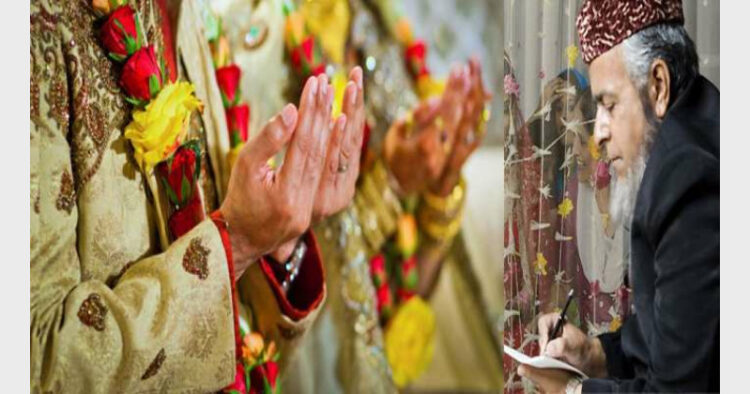Coming to the rescue of a Muslim woman who has been fighting a legal battle for a decade, the Karnataka High Court has held that the Muslim marriage is a contract with many shades of meaning, not a sacrament unlike a Hindu marriage and does not repel certain rights and obligations arising from its dissolution.
The case pertains to a petition filed by Ezazur Rehman (52) in Bhuvaneshwari Nagar in Bengaluru, praying to quash an order passed by the First Additional Principal Judge of Family Court in Bengaluru on August 12, 2011.
Rehman had divorced his wife Saira Banu by uttering Talaq on November 25, 1991, months after the marriage with a ‘Mehr’ of Rs 5,000.
After the divorce, Rehman then contracted another marriage and became the father of a child. Banu then filed a civil suit for maintenance on August 24, 2002.
The family court ordered that the plaintiff is entitled to monthly maintenance at the rate of Rs 3,000 from the date of the suit till the death of the plaintiff or till she gets remarried or till the death of the defendant.
Dismissing the petition with a cost of Rs 25,000, Justice Krishna S Dixit in his order dated October 7 said, “‘marriage is a contract’ has many shades of meaning; It is not a sacrament unlike a Hindu marriage, is true.”
“Such a marriage dissolved by divorce, per se does not annihilate all the duties and obligations of parties by lock, stock and barrel,” the bench noted.
The Judge said the marriage amongst Muslims begins with the contract and graduates to the status as it ordinarily does in any other community.
“This very status gives rise to certain justiciable obligations. They are ex contractu,” the court said.
Quoting verses from Surah Al Bakra in Qur’an, Justice Dixit said a pious Muslim owes a moral and religious duty to provide subsistence to his destitute ex-wife. The court said a Muslim ex-wife has a right to maintenance subject to satisfying certain conditions, is indisputable.
In Islamic jurisprudence, as a general norm, Mehr, that is dower, is treated as consideration for marriage, the court said adding that it may be a ‘prompt dower’ payable before the wife is called upon to enter the conjugal domicile or it may be a ‘deferred dower’ payable on the dissolution of marriage.
“Ordinarily, the right of an ex-wife to maintenance does not extend beyond ‘Iddat’. I should hasten to add that Islamic jurisprudence has not treated this as thumb rule ever, although there is some juristic opinion in variance,” Justice Dixit observed.














Comments